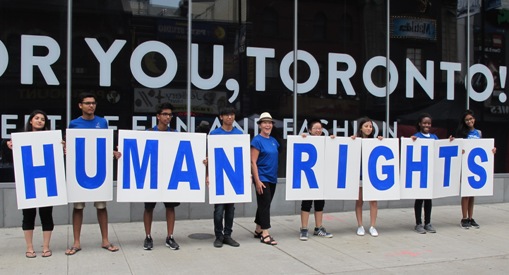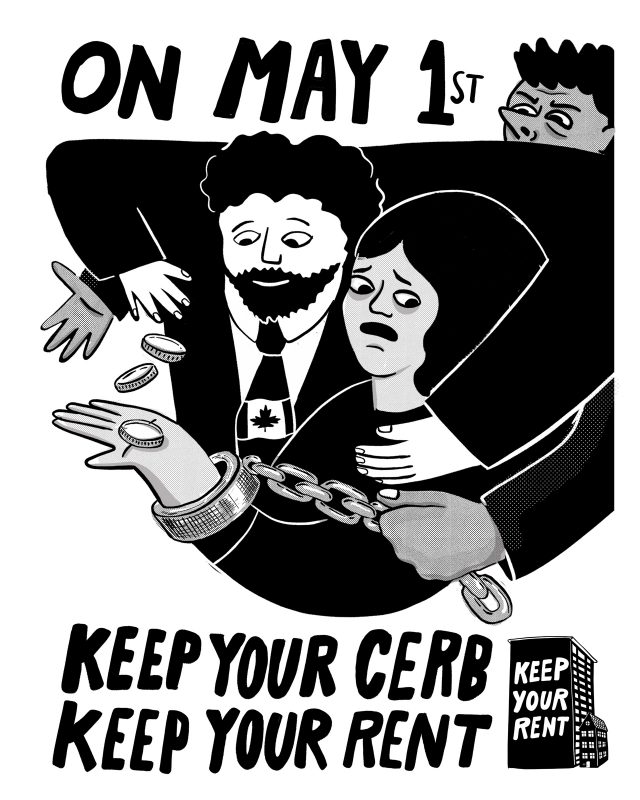.
Ontario Landlords Share Their Experiences. Read And Learn To Make Your Investment A Success
We asked landlords across Ontario to write in to us and share their experiences being small business landlords. We would then share these experiences with other landlords and investors.
The purpose is to provide a venue for people to let others know what they are going through and share the types of challenges and opportunities they are experiencing.
This would not only allow people to make their voice heard, but to also improve landlord knowledge and help our entire community learn the challenges out there and how to protect ourselves and succeed.
The response has been overwhelming.
Not only have we received thousands of stories, but the anger and frustration of just about every submission stands out. The reality is the current rules aren’t fair for Ontario landlords.
Email after email had a similar theme: “There is no balance”. “Everything is on the tenants side”. “We Need Changes”.
If you find a nice reasonable tenant who respects you and your property you will be fine. And there are lots of these tenants out there and you need to find them..
This is why the Ontario Landlords Association teaches the importance of being a professional landlord, with a great property, at a competitive price. This is what great tenants are looking for. They are also looking for a landlord who experienced and knowledgeable and knows their rights and responsibilities.
However, if a tenant wants to “use the system” they can go for months on end not paying rent, make huge damages to your property (often with no repercussions), or make your life a living Hell.
Here are just some of the thousands submissions from hard-working, decent people who became landlords. These are people who believed in the future of Ontario and put their hard-earned money to invest in rental properties and run a successful rental business. They invested with the plan of being a terrific landlord with an amazing rental property for a great tenant.
After all, most OLA members rented before. It could have been as a student, or new immigrant to Canada, or just saving for a down payment. OLA members want to be the “perfect landlord” we always wanted to rent from (and often couldn’t find).
Sadly many new landlords have faced huge challenges. So many things went wrong due to an unfair system that requires dramatic changes.
These are only some of their stories.
“It’s So Easy For Renters To Play The System!”
I am writing this letter seeking for help and fair treatment as a private landlord who purchased the property as my only home but can’t assume it after renting it to a professional tenant who clearly wants to live in my property for free and also blackmail me.
I purchased my condo in 2017 and rented it out to a tenant with a one-year lease because the purchase cost me every penny and I needed some cash flow to pay off the debt I borrowed to purchase this condo.
Starting in Spring, the tenant’s post-dated cheques consecutively bounced, yet the tenant refused to pay me the admin charge for each returned cheque from their bank.
A month later in, when I was conducting a regular inspection of the rental unit, I found the tenant damaged the property by inserting many nails into each wall in the kitchen, living room and bedroom, which is a clear breach of the lease agreement we signed. There are also stains on the wall. The tenant denied they made any of the changes and refused to either fix the damages or pay me the cost to fix.
What’s worst is, the tenant and her representative insulted, coerced, intimidated and threatened me during the entire inspection. While I have evidence from witness – report and testimony- the tenant was still trying to lie about the fact and sued me for thousands of dollars for harassing them. Apparently this tenant is trying to live in my property for free in another way, as they threatened.
The tenant’s threat and continuous harassment to me greatly traumatized me and I don’t want to move back, not to mention now I can’t even get my property back.
Thanks to the ridiculous Residential Tenancies Act in Ontario, I need to pay the one-month rent as compensation even if I need my property back for my own use!! I am now forced to sell the property, which I bought as my only home, in order to kick them out.
When I applied for an eviction order in the summer, the hearing was first scheduled in early August, and then got rescheduled in November, which is even after the end of the lease, because the tenant suggested to the judge that they didn’t think there was enough time to finish the hearing that day and it actually got rescheduled in three months as they wished!!
Apparently this tenant knows how to abuse the system in their favor and they got it. I filed an application, ended up getting a hearing in 5 months.
I feel so powerless and helpless when dealing with a nasty tenant like this because the law is not to protect landlords at all.
I can’t image what I am facing in the hearing as currently every law and actions from the Landlord and Tenant Board are favoring the tenant and I can’t get a hearing happen as scheduled. Not to mention I need to pay, as a landlord, $175 to file an application while tenant only needs to pay $45 to do the same thing.
This system is so broken that I’d rather sell my property to not to be part of it. And I am sure that I am not the only landlord who’s trapped and hurt in this unfair system. Please help me, and do something to correct this system that only favors tenants and gives landlord little choice.
“Secretly Bring In Pets, Damages, Unpaid Hydro Bills and Junk Left Behind”
We own several rental houses near Toronto. Recently we are going after our tenant who left us piles of junk, broken cabinets and shower heads,hole in drywall,and unpaid hydro bills, thousands worth. Not to mention we didn’t want pets in our house and they brought in pets.
I know of another landlords personally, who experienced such.
It caused us endless sleepless nights, stress, nightmares!
“Ontario Landlord & Tenant Board Is A Joke!”
Recently I had to attend the LTB to get a judgement against a tenant who stopped paying rent.
It started with a reason (excuse) that he lost his job. He stated on the application that he was a plumber. Oddly, I have a few friends who own private plumbing companies. I asked them if they needed employees. They offered me the job to offer the tenant. Its hard to find plumbers.
I texted the offer to the tenant….. no answer. I emailed the offer….no answer. I phoned directly. He didn’t pick up the phone. I passed by the property to let him know. At this point he stated that he works for his grandfathers company unlicensed and this is the reason why he wouldn’t respond.
Whenever there was an issue with the property or appliance I would always be there within 24 hours. I’m a fully licensed mechanic and am very capable of doing any type of manual labour skillfully. Also this is my investment and treat it seriously!
At this point I asked him when he’d be able to make a payment. He said a couple weeks. Anyhow I as a caring individual gave him the benefit of the doubt.
After months with no rent I finally filed the proper documentation with the LTB. I offered him $1000 for first months rent elsewhere as this upper 3 bedroom unit was obviously to much for him to handle at over a thousands dollars + utilities.
The funny thing is I get along with the neighbours and started getting calls from them that strange people have been coming and going from the property. Shady types apparently. I got another call from another neighbour who stated he watched the tenant carry a brand new 60” top of the line 4k LED TV in a box (with help) into the upper unit. I had to see so I scheduled an inspection for 48 hours later.
I completed the inspection and sure enough therein was mounted on the wall while he was high playing video games. It doesn’t sound to me like he was making an effort to pay rent and realized at that moment I was taken for a ride.
At the LTB hearing the arbitrator heard overwhelming evidence of his lack of commitment with nothing thrown my way. The arbitrator asked any issues with the landlord or property. The tenant said no. The arbitrator asked why he hasn’t paid the rent. He stated he lost his job. The arbitrator asked all the right questions to ascertain his motives.
I left the LTB feeling confident I was going to get the eviction order in 11 days( the minimum). By this point I am now 4 months without rent and the arbitrator gave me 20 days before I could file the eviction order with the sheriff for eviction. But the sheriff is backed up so much with evictions at the moment that there is a 4 week waiting period. So now I’ve got to wait 20 days plus 4 weeks to finally get him evicted.
The absurd part of this whole story is the tenant was mad at me!
I gave him chance after chance I tried mediating by helping him monetarily to leave. He stated I treated him poorly by asking for NSF fees. I told if doesn’t want NSF fees he should try paying the rent instead of buying TVs to replace working a working one.
He tried demonizing me to make himself fell better that he was ripping off a bad guy. That didn’t fly with the mountain of evidence stacked against him. He wanted the money but didn’t want to sign an IOU contract. This is the condensed version of the joke I call being a landlord.
I have no doubt that he will destroy the unit when he does finally leave. I have one word of advice BODYCAM like the police wear and use it with all tenant interactions. You can prove your innocence without problem if they start claiming harassment as mine did.
Asking for rent money is not harassment!. Its a business transaction! All conversations should be recorded and or emailed. You never know how a tiny conversation can go sideways.
Lets face it people in that situation will do and say anything to prove themselves. At the end of the day I did everything right and the arbitrator STILL gave them extra time to stay for free. I would say the mandate for the LTB should be to find out what is going on between a particular landlord and tenant based on evidence. Make a clear judgement. There are difficult landlords also.
There is no need for a non paying tenant to stay an additional 6 weeks. Especially when they have absolutely no excuse. Pay or get out conversely when a landlord is found lacking the judgement should go towards the tenant. Fair is fair! Right now landlords are getting crushed by the LTB and professional tenants.
As it stands now I am selling my properties and getting into commercial properties.
Forget affordable housing. I shouldn’t have to be worried that a government will judge against me when I’ve done nothing wrong except be financially responsible for myself. If a tenant wants to smoke pot and play video games all day, that is his problem and should not be mine.
I strongly believe that the LTB should adopt commercial rules for residential units also. There are a lot of good tenants out there that are waiting for a good unit/landlord but these deadbeats are keeping the homes hostage.
“Scared to Rent Out My Properties And You Should Be Too!”
I am months away from being a senior. I have been self employed most of my life, and for many years my wife stayed home to raise our kids because I traveled. We have no pension.
We have only our savings and our house. Every time I tried the stock market I got burned so of course I have been on the sidelines watching the greatest bull market of all time – figures.
My wife and I just bought a house in northern Ontario as an investment and a future retirement home. This is part of my “pension”. We fear the stock market that can wipe out your savings but GIC’s offer next to nothing. We are in our 5th home so we thought real estate was something we understood. We thought we could rent it out to cover the mortgage payments and if we were lucky it would appreciate over time.
Then we started reading about the history of LTB rulings and how the new laws those GD Liberals passed essentially put us at the mercy of a Tenant and we almost passed out.
We are seriously considering selling the house and saying to heck with it. It does not appear to be worth it to be a landlord in Ontario any more.
If the Landlord does not have the ability to protect their investment from bad Tenants and the margin on the investment is slim why would someone want to be a Landlord?
Tenants think they have a right to do whatever they want and to not pay rent because they want to enjoy their life, pay for other stuff or save for their future?
Sure they do. Buy your own house or move into Ontario Housing. It is not the individual Landlord’s responsibility to support those who can’t or don’t want to buy their own home.
And we just closed the deal on the house! If I had known about this before we bought, we would not have and there would be one less rental unit available. There still might be.
Today we turned down a prospective renter because we were afraid that they might be one of those bad renters who would get in to our house and then not look after it or not pay their rent and then cry to the LTB or just vanish.
It was a 40ish year old person with a young child on UI and their partner who is 6 months into a job with a small time contractor that does small repairs.
If I could charge a significant damage deposit and be sure I could get them out if they got pets or smoked in the house or grow dope or didn’t keep the house clean or or or… then we might have given them a chance.
But we can’t so we didn’t.
So the LTB and the Liberals misguided legislation actually had the opposite effect. Someone who needs a house to rent and might have looked after it and paid the rent isn’t going to get the chance.
I would rather have the place sit empty than risk damage and legal fees and still get no income if they didn’t pay. If it is empty my costs are fixed and my risk is low.
“Renting Basement Can Become a Nightmare (& even stress out your dog!)”
I live in my home and rent my basement apartment. I have done so with little to no trouble for 5 years, until my latest tenant moved in this winter. They used up her last months rent when, over a dispute I had with the screaming at their children (who live here part time) they said they were going to move out.
At the end of that period they did not move out. After many apologies and promises to do better, I gave the another chance (fool that I am). They only paid part of her rent in June/July period, and now owes me the remainder plus July/August period, and August/September period is looming.
I served the with an N4, and was not surprised when they didn’t move out on the termination date. I have filed an application to evict with the LTB. The hearing is not until October.
After reading through information on your site, I’m terrified about the hearing process with LTB, and not at all hopeful that it will result in an actual eviction taking place.
Meanwhile, I have my tenant and their partner, whom they promptly moved in shortly after they took possession, and is not on the lease, plus their two children living here periodically (all four at times, in a basement bachelor apartment), basically for free.
While my hydro bills/water bills etc are much larger than then would be if the apartment was empty, and I am going in the red without the rental income coming in.
I don’t know what to do. I’m stressed out, my dog is stressed out (he literally sits in my lap shaking when they are yelling at the kids, banging doors/etc., or when the partner stomps up and down the stairs, banging the doors shut).
Tenant refuses to answer my inquiries as to when they are moving out. I’m at my wits end, and I just don’t know where to turn for help – or if there is any help to be found.
Am I just stuck with this nightmare tenant and their family living in my basement for free? It’s just so unfair.
I can’t afford a lawyer to help me with the hearing, and I’m literally scared out of my wits after reading the information on your site. Is there any assistance out for inexperienced landlords like myself who have never had to deal with this before? I get the feeling this might not be their first go round, and that she is quite versed on how she can milk the system.
“Newcomer To Canada Invests And Gets Burned”
I am a small landlord who have only one detached house to rent out in the GTA.
I have experienced 3 different renters in the past 2 years, and 2 of them were horrible. It is a really bad nightmare for me and my family.
The rental property was renovated completely 2 years ago. However, the first renter grew a huge dog (more than 1.5 meter long and 1 meter tall). The dog scratched and ruined the brand new wood floor completely. Indeed, in the lease agreement, it was clearly stated that “no pet is allowed in the premise”, and she lied to me in person during interview as well.
..
After living for only 4 months, she left out of sudden with a couple of days short notice. She did not clean the house at all and left tons of craps in the house. When we asked for compensation for scratching floor and she even did not bother to answer.
The other headache renter is living in my property right now.
…
The neighbor complained to me that they were growing 4 plants of cannabis in the backyard. I need to confront with the renter. Indeed, in order to prevent this kind things from happening, I already clearly stated in the Lease Contract that “The parties agree that no cannabis will be allowed within the premise including inside building, car park, and front/back yard.”
…
In consideration to cannabis legalization in Canada especially in Ontario, I am really afraid that this clause within the contract cannot protect my rights as landlord at all.
I am a new immigrant to Canada. At the beginning, I thought Canada was a honesty country and people living here have high standards of morality.
…
However, my previous experience of dealing with these renters has significantly changed my impression regarding this society and this Country.
…
The thing makes me more frustrated is that as I get into studying the regulations in the rental area, I realize the current law completely makes no sense at all. The law protects those people with bad faith and encourage bad behavior.
…
The entire rental regulations are based on a ridiculous assumption that “landlord is evil and greedy, and needs to be regulated”.
…
I really cannot believe in Canada especially in Ontario the law is so biased against landlords, especially small landlords who invest their entire life saving by hardworking in properties .
The goal of government is to increase affordable housing and rentals provide that option. Landlords must be able to manage risk, provide safe homes and be able to earn some profit in return for managing the property and investing their capital in homes for rent.
Therefore, landlords must have the ability to disallow some behaviours on their properties.
This includes behaviour such as smoking, including all types of smoking: cigarettes, cigars, pipes, weed and vaping.
Further, growing marijuana requires conditions that are not akin to a safe environment as light and temperature may need to be manipulated. Grow ops have ruined entire houses in the past. Landlords must be able to prohibit marijuana growing in their properties.
Ontario Landlords Speak Out!
…
Landlords across Ontario face huge challenges. The above stories are only the tip of the iceberg! It’s clear the system to be changed to encourage more good people to invest in residential rental properties.
.
Before the OLA came around there was almost zero coverage of the challenges small landlords and investors face. Most landlords didn’t even know how to screen potential tenants.
.
It’s time to fight even harder and get our message out!
.
It’s time to make your tenant screening system even more strict!
…
Please share your Ontario landlord experience by emailing us at: landlordtenantsolutions@groupmail.com
..























